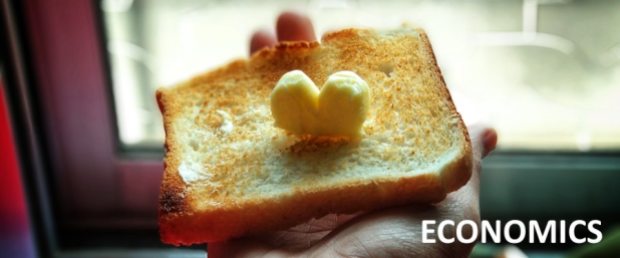
When money was less easily printed, more of a medium of exchange and unit of accounting than an object of desire or a means of comparing riches across large groups of people, capital was not just a stash of cash. Capital was productive capacity vested in some kind of hardware or tangible ‘thing’. It could be a plot of land, or a buffalo, or a building that can shelter one from a storm.
When you have a plot of land, you’re chasing produce or crop yield. But it doesn’t stop there because crops can decay, so you have to find your market. And even in the market, you have to be clear what you hope to get eventually with the crops you sell, because the money that you hold might get debased quickly or you could be just bartering the crops. So you might think alright, I want to be able to improve yield, so the gains will go towards a buffalo, or some tools. Or you use the crops to pay workers, so you get more help and work the land more intensively.
You ‘save’ by preserving food, or having more children (whom you feed with the extra crops). And so the land, which is your capital chase for returns but what you get in terms of returns may not be more land or more ‘money’ but more goods, a richer experience of life. When humans try to regulate that by creating money, and then try to introduce price stability and the notion that money or at least the value is somewhat more persistent than other things in the world, our perception of how the world works gets skewed.
We accumulate money and try to accumulate even more with the money we get. All the while, it becomes just a meter that is counting scores without changing your life. Sure, you can exchange money for luxuries and a so-called better life. But why not just postpone that and make more money in the meantime? So the game of capital is just chasing returns, almost perpetually. The result is that capital seeks to indebt people; and the central banks ease the problem by printing more, creating inflation so that people will be led to consume, and to actually behave a bit more like when money was less trustworthy.
But this itself becomes a bit of a solution for easing recessions, stimulating the economy – kick-starting some kind of positive cycle that leads to growing activities and expansion of economies. And the whole system goes back to being a dog chasing its tail. The growth in our economy is simply to achieve more growth. And that is starting to behave more like capital again. No wonder capital wins labour in the game, because we’ve all been led to play the economy like capital’s game.
Perhaps if we understand labour a bit better, we can steer capital for the better?
